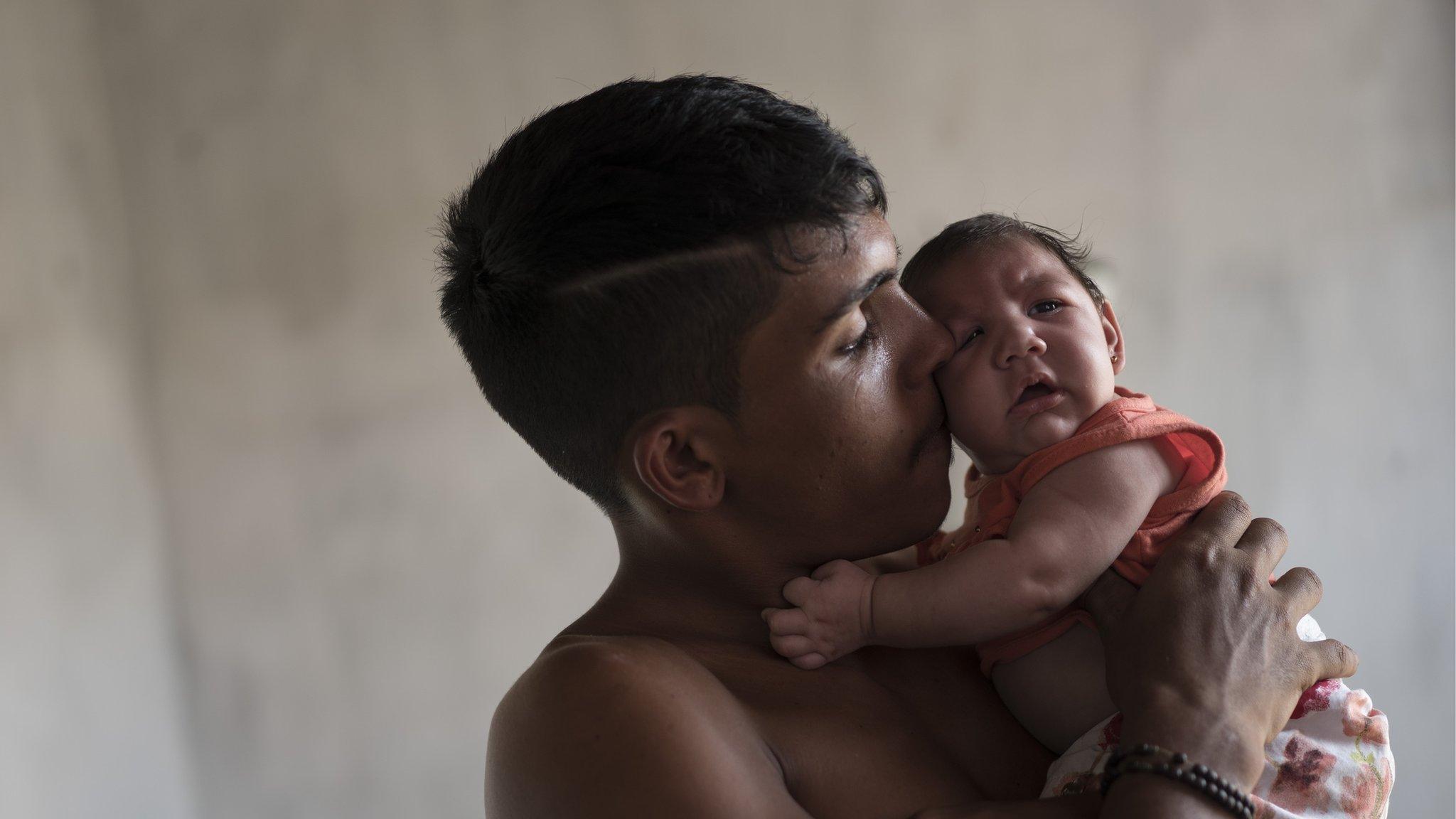Rio 2016 Olympics: All you need to know and plenty you don't
- Published
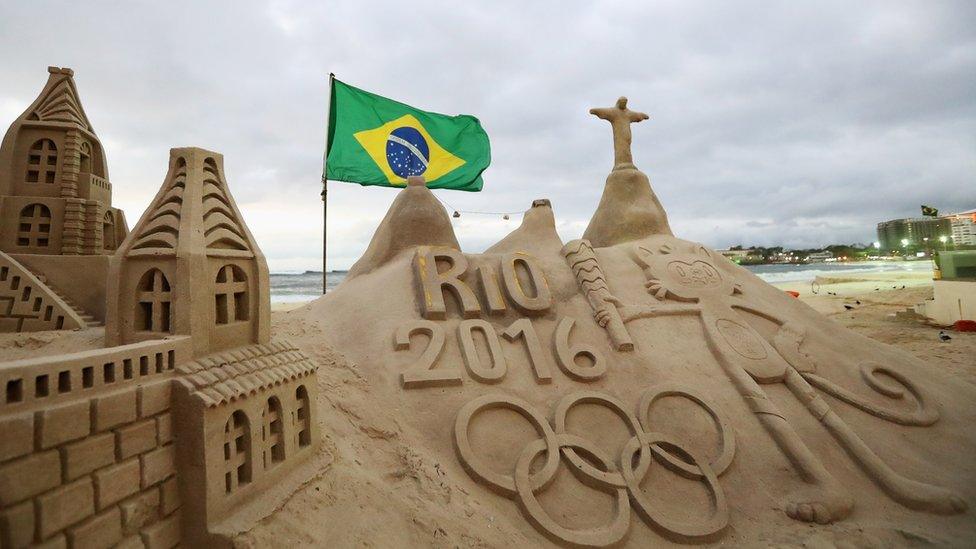
Sea, sand and sculpture: Rio 2016 is making the most of the city's selling points
It's that time again. Four years since London 2012, it's Rio 2016.
Put everything to one side for a few weeks. This is the time to briefly start taking an interest in often random sports that might otherwise pass you by.
Here's our guide to everything you need to know about the Rio 2016 Olympics.
How long are the Olympics on for?
The Games officially take place between 5 and 21 August. But if we're being pedantic, the first events were actually on 3 August - the women's football match between Sweden and South Africa kicked off the Olympics.
Competitions are taking place across 32 venues in Rio de Janeiro, with football matches also scheduled for the cities of Belo Horizonte, Brasilia, Manaus, Salvador and Sao Paulo.
When are the main events?
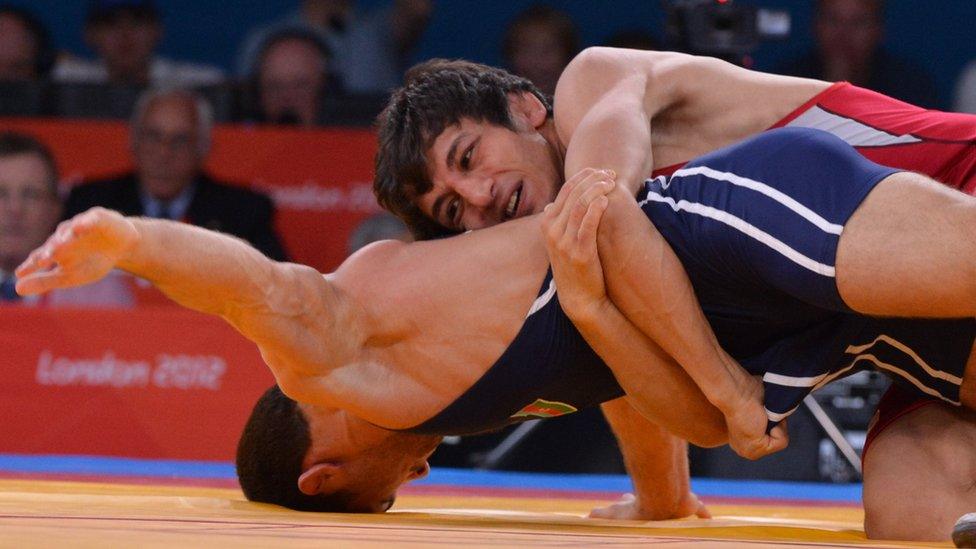
Saddle up, it's Greco-Roman wrestling time again
If you're that way inclined, the synchronised swimming begins at 11:00 Rio time (15:00 BST) on 14 August. The same day sees the finals of the men's Greco-Roman wrestling, which always makes for... alternative viewing.
As always though, much of the focus will be on the track and field athletics - they start on 12 August, and end on the morning of the last day, 21 August, with the men's marathon.
Of the showpiece events, the men's 100m final takes place at 22:25 Rio time on 14 August (that's 02:25 BST on 15 August); the women's 100m final is at 22:35 Rio time on 13 August (that's 02:35 BST on 14 August).
You can find the full schedule here, external (all times are Rio times, which is four hours behind London).
Is Rio ready?
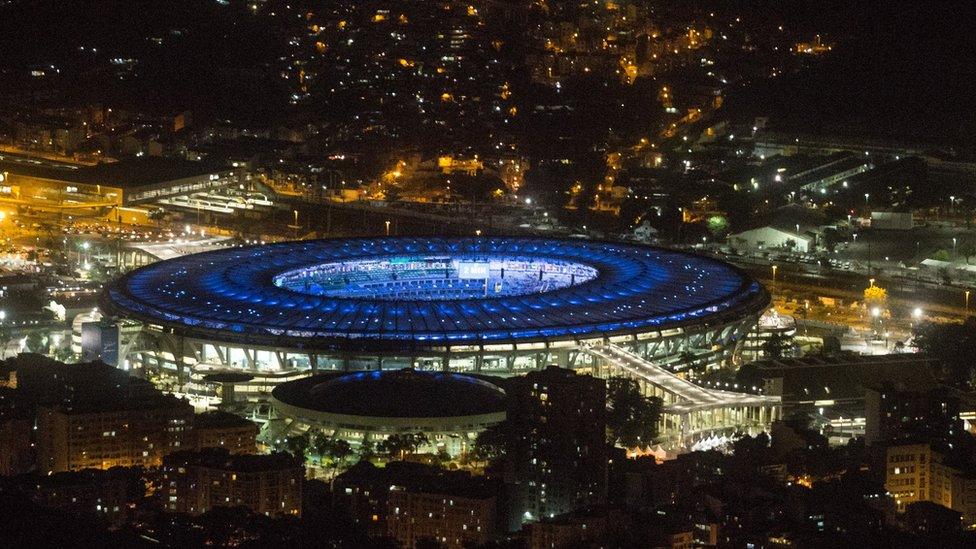
The Maracana stadium: ready, very definitely ready
Well, the Games are happening, so that's a pretty good sign.
Like any Olympics, there were plenty of obstacles in the build-up, and plenty of concerns stadiums wouldn't be finished. A few deadlines have been missed, but nothing too serious.
Australia's team, for one, was not too happy with the state of its accommodation, but eventually moved in.
Meanwhile, a launching ramp to be used for sailing competitions collapsed in strong waves the weekend before the Games began, but is being rebuilt.
Read more: Is Rio ready?
What's going on in Brazil?
One person you won't see at the opening ceremony is the president - Dilma Rousseff is suspended and facing impeachment over allegations she manipulated the government budget (she denies this).
The interim president, Michel Temer, said she would have been placed in the stand below him at the opening ceremony, and not at his side - she wasn't happy with this.
Read more: How did it go wrong for Dilma Rousseff?
Is it safe?
Rio officials admit they've failed to keep up promises to clean up water where watersports will take place - but Team GB say they haven't had any problems yet.
Chinese state media has criticised security in Rio, after women fencers were robbed and shooting team members found "unauthorised payments" on their credit cards.
China's foreign ministry has also warned its visitors to avoid "dangerous" areas of Rio and vowed to increase protection for Chinese athletes after a hurdler fell victim to a scam.
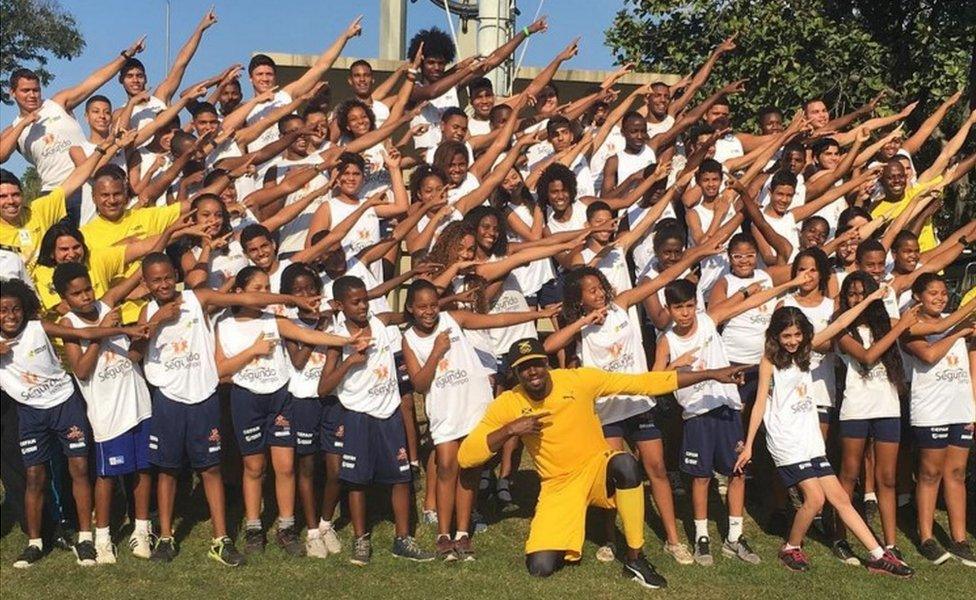
Jamaican athlete Usain Bolt went out of his way to spend time with children from what he called "the most dangerous communities here in Rio"
How about Zika virus?
Brazil is at the centre of an outbreak of Zika virus, that is spread by mosquitoes and can lead to birth defects.
It's so serious that the World Health Organization has recommended pregnant women avoid travelling to the Games - but, it said, mosquitoes are rare in August, and in June it recommended the Games not be moved or cancelled.
Not everyone agrees - ask more than 100 leading scientists, for example, who said it was "unethical" for the Games to go ahead. Plenty of golfers have dropped out over their concerns too.
Read more: All you need to know on Zika
Who are the mascots?
Wait, there are more important things to go through first.
Will Russia be at the Olympics?
Yes, sort of.
An International Olympic Committee (IOC) panel decided which Russian competitors can take part in the Games, amid claims of state-sponsored doping.
There had been criticism of the IOC for not banning every Russian competitor, and there are now 271 Russians taking part - still a significant number.
Read more: How many Russians will compete in Rio?
Can refugees take part?
Team Refugee: Swimming for survival
Yes - the IOC said in March that a refugee team would enter Rio as "a message of hope for all the refugees in our world".
There are 10 members of the refugee team, including Syrian swimmer Yusra Mardini.
(By the way, Syria does have a team in Rio, external, but with only seven members.)
Read more: The Syrian refugee fulfilling Olympic dream
When are the Paralympic Games?
From 7 to 18 September.
What will the weather be like for the Olympics?
Remember that Rio is in the southern hemisphere, so it's winter there. Even then, it's promising plenty of sunshine, and highs of some 27C (81F) during the first week of the Games. Not bad.
How can I take part?
As an athlete, forget about it. Your best bet is Tokyo 2020, I'm afraid.
As a viewer though, we could do with your help.
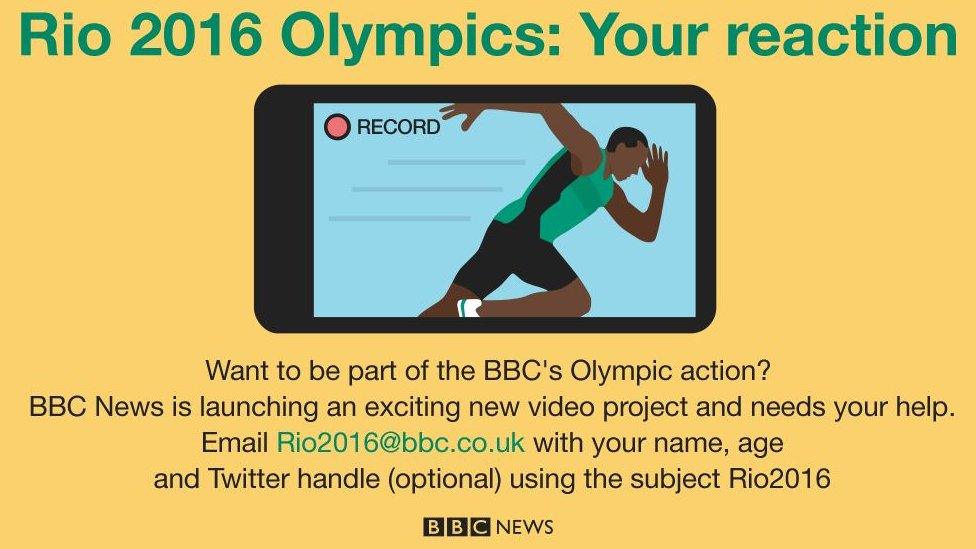
Wherever you are in the world, we'd like you to share your reaction as you watch the men's 100m final and as you watch an event you are passionate about.
If you want to get involved, simply email your name, age and Twitter handle (if you have one) to Rio2016@bbc.co.uk, external and we'll send you more details on how to take part.
We'll feature some of your contributions across BBC News social channels on Facebook, Twitter and Instagram. Your content could also appear on the BBC News website, on mobile and in BBC News programmes.
We look forward to hearing from you!
So, who are the mascots?
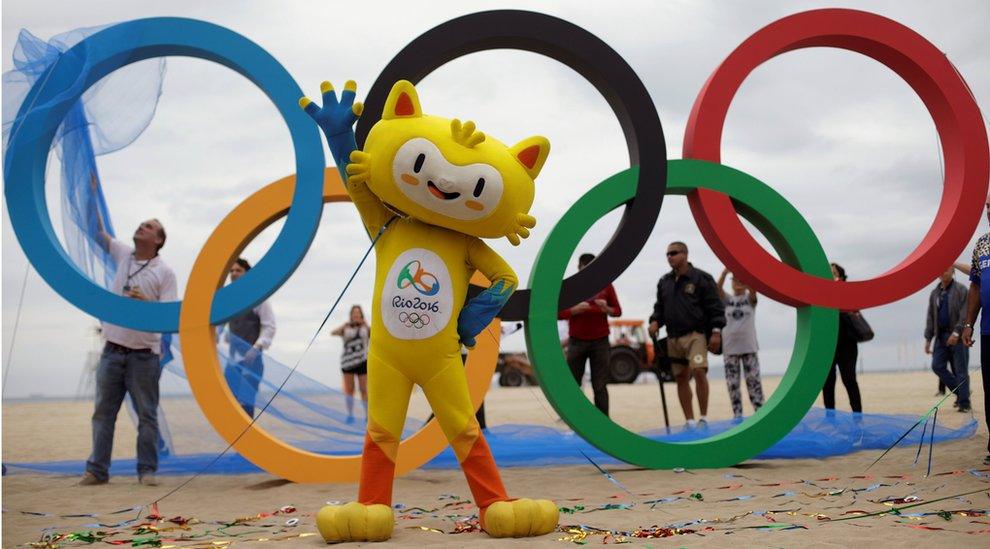
This is Vinicius, the Olympics mascot, who is modelled on a range of different animals in Brazil who have clearly developed a way of interbreeding.
He is named after Vinicius de Moraes, a Rio poet and playwright who died in 1980 and is one of Brazil's most-loved artists (he wrote The Girl from Ipanema, among many other songs).
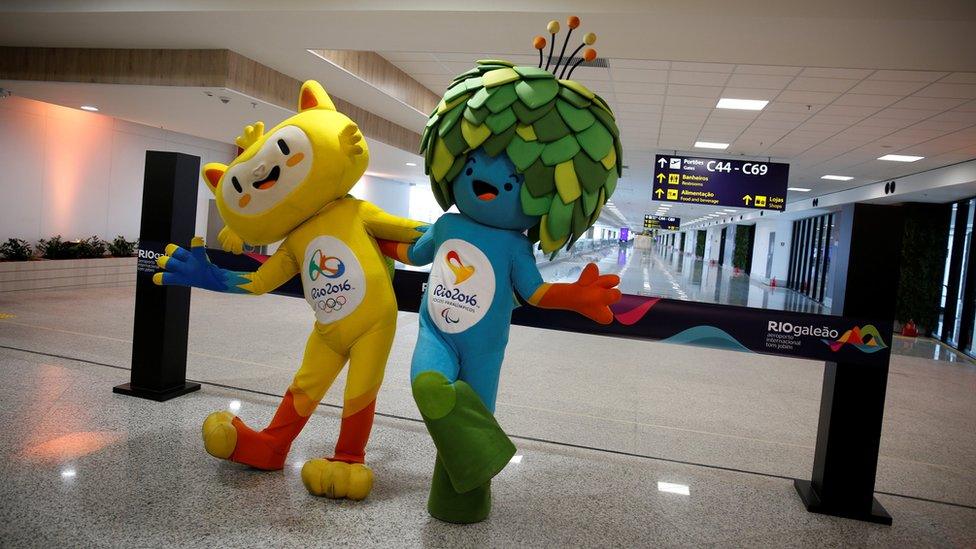
And here he is with Tom, the Paralympics mascot - he's named after Tom Jobim, Vinicius de Moraes' writing partner.
He, apparently, represents a mix of Brazilian flora and fauna.
But pity the person standing inside the costume in 27C heat.
Related topics
- Published1 August 2016
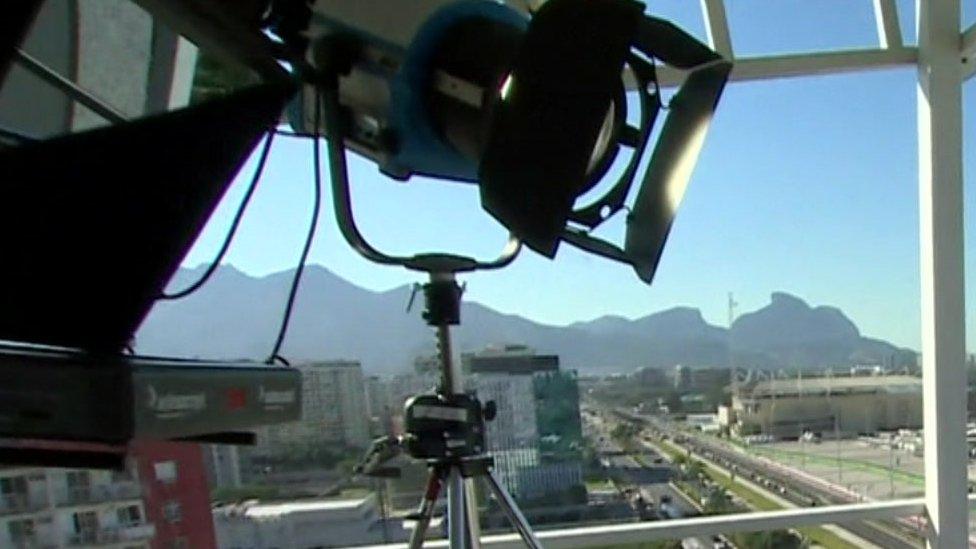
- Published28 July 2016
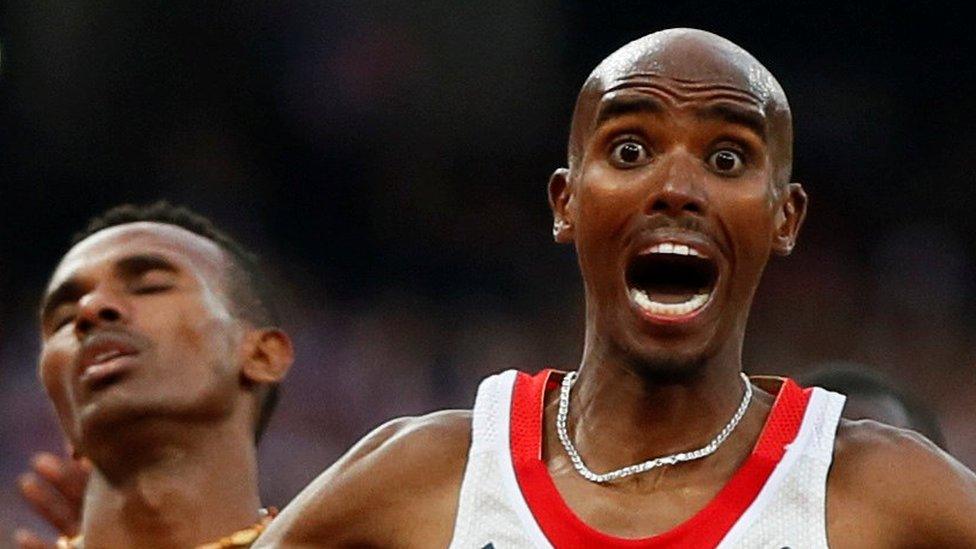
- Published2 August 2016
- Published31 August 2016
